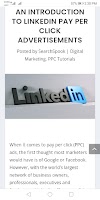Social media marketing can take many different forms for you online make sure
Many brands are turning to consent-based, zero-party, or first-party data collection (zero-party, of course, from polls, surveys, etc. and first-party from Web activity that requires analysis). Consumers may sign up for a newsletter and share their personal information, such as names and e-mail addresses on a Web registration (first-party) or marketing preferences (zero-party). This then, of course, allows for better targeting of individual prospects or existing customers to convert or retain them. Then we can start to take back control.
Historically, advertiser brands have analysed their consumers by creating profiles based on various demographics or through the use of cookies.
However, significant changes are, of course, now hitting the industry, pushing brands to rethink how they find and connect with customers.
Since Google announced it was ending support for third-party cookies by the end of this year, advertisers have had their hands forced in looking for new ways to reach their audiences. As the world moves forward, understanding audiences will be crucial to communicating effectively in a world where privacy is at the top of every news and advertising agenda.
Cookie tracking statistics from Adobe.
Cookie tracking statistics from Adobe.
Adobe says that, as far as Web sites generally out there go, 77% of Web sites and 82% of digital ads currently use tracking cookies. What are you doing about that?
The decline of cookies is challenging businesses to source new, effective, and compliant ways of reaching their audiences without invading their privacy. Understandably, this will prove to be a significant adjustment. Third-party cookies were a heavily relied upon means of achieving these goals, albeit expensive and labour-intensive. New solutions are required.
Imagine a future where no-one can change your business overnight in an algorithm amendment.
One of the solutions is contextual advertising — a form of targeted advertising where site content and keywords are analysed in real time to determine their suitability for a brand's message.
Contextual targeting does not use search or browsing history or cookies, therefore, respecting privacy.
Prioritising privacy and trust
The ad tech landscape has changed significantly over the last few years, with privacy and public trust contributing significantly toward this shift. Data collection and cookies naturally have poor public perception, often being viewed as encroaching on private information and stealing data, with ads following consumers around the Internet.
As digital advertising continues to battle with negative consumer perceptions, the onus is on advertisers to find ways in which they can recover trust. They need to serve engaging ads that fit seamlessly into publisher pages, enhancing the user experience.
The industry is adapting. While contextual targeting has become one reliable alternative to cookies, marketers have seen a number of other new solutions enter the fray over the past few years.
The cookie fallout
The fallout from the death of the cookie scenario creates an interesting outlook for the next few years. A number of brands and advertisers will be forced to rethink their strategies, and the industry will go through a transition period.
A wide range of new solutions will be tried and tested, and there will certainly be winners and losers. However, no one will win more than the consumer as advertisers place a higher focus on the user experience in an attempt to deliver better results without the use of cookies — more creativity, more insights, more tech focus. More thinking out of their comfort zone.
The phrase “getting ahead of the curve” gets bandied around a lot, but it’s never as easy as it sounds. It requires a granular understanding of the industry with great creativity and foresight to predict its next turn before it is made. However, whilst it is a challenge, the right resources can help any brand get that all-important step ahead.
The industry and consumers will see a human-first, research-led data experience, and brands will need to develop trust with an increasingly skeptical consumer society. Those that build a strong bond through accurate targeting and greater customer engagement will come out on top during this transition period.
In a cut-throat and viciously competitive market, pioneering new technology can have a major impact on the effectiveness of advertising campaigns. Any slow, delayed, or ineffective decision can lead to brands falling behind in the fight to attract customers, and importantly, sales.








.jpeg)





0 Comments